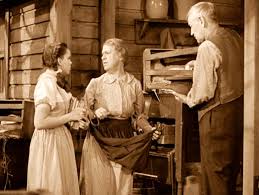
Imagine Fiction Creating Friction
The gem cannot be polished without friction – Confucius
Fiction reveals truth that reality obscures – Ralph Waldo Emerson
Imagine a vast, well-orchestrated movement, lavishly funded and daily pushed forward by thought-bullying academia, high-jacked science and clandestine as well as high-profile elements of government.
Imagine that movement propelled via dark arts and a complicit media that restricts and manipulates content to reshape the entire narrative and culture of a nation, and, in fact, has designs on transforming the whole world.
Imagine certain kinds of speech and ideas fiercely monitored, deemed unacceptable, archaic and dangerous.
Imagine dissenters, especially those professing faith in God, marginalized, vilified and considered a threat to the expanding new order.
Imagine those who take positions contrary to the movement losing their jobs and reputations, prosecuted in the court of public opinion and courts of law, some even jailed.
Imagine their businesses and families targeted by vicious, verbal attacks and public harassment led by paid mob leaders and encouraged by professional politicians and celebrities cheerleading the nasty and deadly mayhem.
Imagine “free” speech costing careers and lives, splintering friendships, communities and races, inciting death threats and actual physical violence against those who speak and support an opposing view.
Imagine such a world.
Oh, wait. Did you think I was talking about current events? Before some of you label, marginalize or unfriend me, imagine this scenario as the driving engine of a novel published in 1946. The author described it as a “modern fairy tale for adults.” From his vantage point in England at the end of WWII, having witnessed the carnage of worldwide madness at the hands of brutal, tyrannical forces, the author called the nefarious movement in his fictional story - the “Progressive Element.” His term. In 1946. One of the main characters even ponders what the world will look like in sixty years if the movement is left unchecked.
Here we are seventy-three years since its publication. I suspect the author would never have considered himself a seer like Nostradamus or a prophet like Isaiah, but in this case, does his art take on a prophetic voice? Put on your independent thinking cap, if you still have one, and think it out for yourself.
Or heck, maybe it’s just a story.
If you like stories where the power of fiction creates friction in a power struggle between opposing world views, I highly recommend C.S. Lewis’ That Hideous Strength. It’s the third and final book in his Space Trilogy, preceded by Out of the Silent Planet and Perelandra, I first read all three in the late 70s. Just read the well-worn box set again a third time. (Even discovered a bookmark in the second one, a lovely note on a postcard from an old flame, dated 1981.)
If the epic clash of ideas were not enough, Lewis weaves into That Hideous Strength the strained relationship of a young, but already disenchanted married couple, Mark and Jane. They are being further torn apart by the centrifugal pull of the light and dark sides of the larger cultural struggle. Through the main character, Ransom, Lewis imparts timeless wisdom about the dynamic of what creates or breaks intimacy between two souls.
In case you don’t get to this story as soon as you should, here’s a nugget: Jane has fallen out of love with her husband, not faulting him, but thinking their marriage was a mistake. Ransom tells her, “...you do not fail in obedience through a lack of love, but have lost love because you never attempted obedience.” Jane assumed equality to be the foundation of a relationship, especially a marriage relationship, “I thought love meant equality and free companionship,” she tells Ransom.
“You were mistaken,” he tells her. “Equality is not the deepest thing…Those who are enjoying, or suffering something together are companions. Those who enjoy or suffer one another, are not…It’s not your fault. No one has ever told you that obedience – humility – is an erotic necessity.”
And all this, from a middle-aged bachelor professor just a few years ahead of Lewis’ own surprising mid-life romance and joyful marriage.
Wow. Obedience? Humility? Deeper and more essential to love than equality? Would that sell today? Or cause friction? Does it rub against our cries for individuality and inalienable right to the pursuit of happiness? And shed light on both? This very human element woven into the larger story is just another reason I urge you to read this remarkable book.
Consider adding all three books immediately to your reading list. Each one can stand on its own, but as a series they reflect the magnitude of Lewis’ oceanic insight and literary genius. As you read, imagine someone turning them into movies with today’s brilliance in special effects. The space travel, other worlds and fantastic aliens would come alive - as would the dire and heroic conflict and romantic struggle set in the middle of it all. I think you will not find it hard to picture one movie from each book, the plot and characters connecting across all three, like filmmakers did so well with the same author’s allegories, The Chronicles of Narnia. Imagine, in our current clash of world views, the courage that would take and the controversy it could spark, perhaps creating some good friction.
But don’t wait for the movies, enjoy C.S. Lewis’ grand saga in print, in the theatre of your own imagination. See if it rings a familiar bell or two in your non-fiction world, and find out what becomes of Mark and Jane.
The author’s voice may not be as prescient as Nostradamus or Isaiah (or is it?), but for some readers, either fully engaged in the cultural battle or hanging uncertain in the breach, Lewis’ story may play the role of Nathan, who wrecked King David with a story of tyranny, pride, injustice and blindness…and helped cure him of all four.
Or heck, maybe it’s just a story.


 RSS Feed
RSS Feed